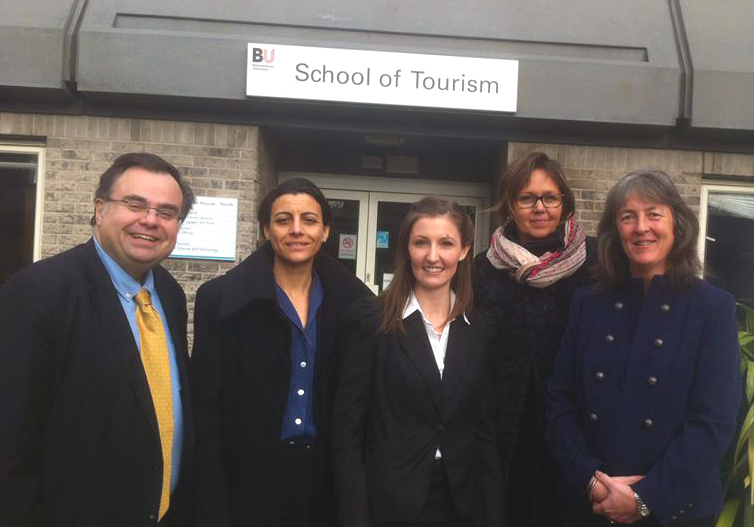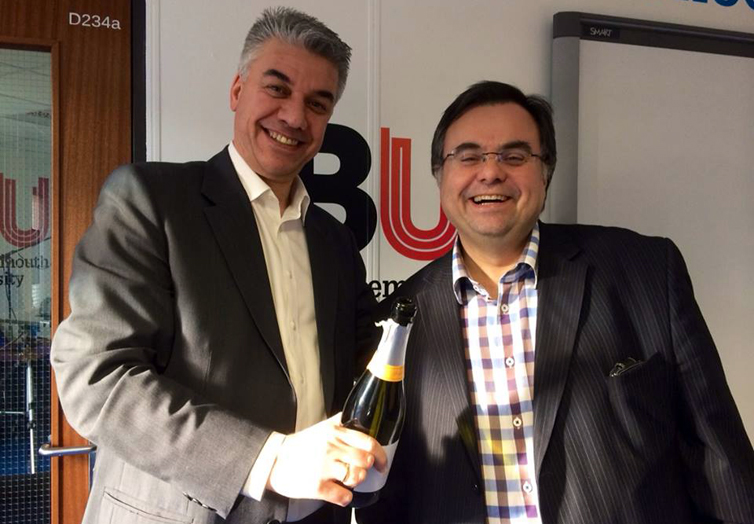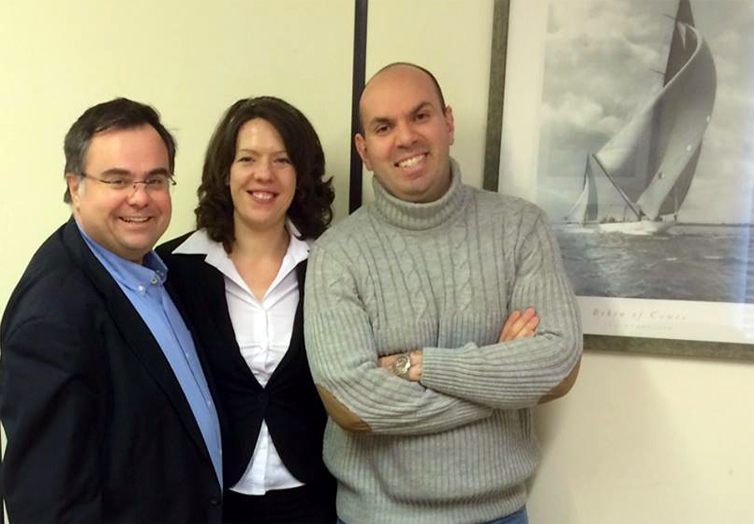 |
 |
 |
Bournemouth University eTourism Lab congratulates its members Dr Barbara Neuhofer, Dr Zornitza Yovcheva and Dr John Fotis with their PhD projects!
The notion of creating unique and memorable experiences for consumers constitutes a prevalent concept in the tourism industry. Aiming to explore how the tourist experience can be enhanced by information and communication technologies through consumer-company experience co-creation throughout all stages of the travel process, Dr Barbara Neuhofer conducted PhD research on ‘Technology Enhanced Tourist Experiences: A holistic exploration of how tourist experiences can be enhanced by technology’. This study fills gaps of understanding, conceptualisation and empirical exploration of information and communication technologies (ICTs), implemented as a catalyst of change enhancing the tourist experience, and of transformations in consumers’ co-created experiences. The thesis was supervised by Prof. Dimitrios Buhalis and Prof. Adele Ladkin. Further information about the research
Dr Zornitza Yovcheva is an expert in mobile user experience and user research for travel and tourism. Her PhD topic is ‘User-Centred Design for Smartphone Augmented Reality Applications in Tourism’. Technologically advanced smartphones allow the use of Augmented Reality (AR) and introduced this technology to the mass market. In a typical AR smartphone application, the user of a smartphone can see virtual information overlaid on top of real-world physical objects (e.g. buildings or monuments) through the display of the smartphone. The research, supervised by Professor Dimitrios Buhalis and Dr. Christos Gatzidis, looks at the influence of context of use for smartphone AR applications when used by tourists in unfamiliar environments with the aim to develop conceptual framework for design of adaptive (context-aware) smartphone AR applications for tourists. Further information
Dr John Fotis made his doctoral research on “The use of social media and its impacts on consumer behaviour: The context of holiday travel”. During the last years, social media enjoy a phenomenal success in terms of adoption and usage levels. They cause paradigm shifts on how people connect and communicate with each other, on how they express and share ideas, and even on how they engage with products, brands, and organizations. Moreover, social media became significant networks of consumer knowledge. Dr Fotis’ study contributes to existing knowledge by proposing information exchange as an enlarged consumer behaviour construct. Moreover, the study identifies six social media functional spaces that enclose active users’ specific behaviours and cognitive functions: inspiration, collaboration, decision-making, self-expression, communication, and entertainment. Finally, the study proposes the social media enabled travel process model as a framework for understanding use and impact of social media throughout the holiday travel process. A number of implications for practice, as well as emerging areas for future research are drawn. Further information